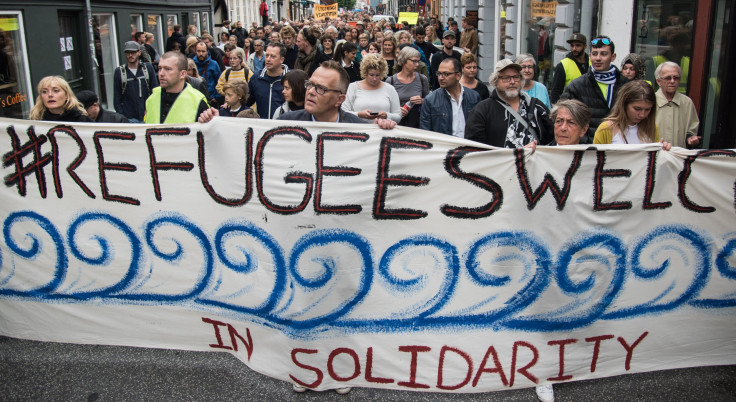EU Refugee Crisis In Denmark: 11,000 Asylum Seekers Arrive In 1 Week

With temperatures dropping across Europe, refugee arrival numbers have continued to beat records. From Nov. 2 to 9, Denmark’s National Police estimated that over 10,900 people entered the country, up from the 3,500 to 6,000 per week recently, the Local reported Tuesday.
“It is now well-known that it is possible to come to Europe, and many are speculating how long it will remain possible,” Andreas Kamm, secretary general of the Danish Refugee Council, said. Kamm said word was spreading in refugee camps in Jordan that refugees were receiving chillier receptions in Nordic states as governments attempted to deal with increasingly large numbers.
Denmark’s police said the figure of 10,900 was a minimum number based on observations from arriving buses, trains and ferries. Authorities said they believed many of refugees would pass through Denmark and continue to Sweden, where they would seek asylum. Refugees have continued to flee conflicts and repressive conditions in states such as Syria, Iraq, Afghanistan and Eritrea.
Military officers have started coordinating logistics for Sweden’s refugee and immigration agency as the agency struggles to find housing for the thousands of arrivals, the Guardian reported. Over 120,000 people so far in 2015 have applied for asylum in Sweden, and experts estimate that by the end of the year the number will hit 170,000.
“We don’t have any more space,” Fredrik Bengtsson, spokesman for Sweden’s refugee and immigration agency, said. “Right now we’re just looking for people to have a roof over their heads.”
Denmark has rebuffed Sweden’s suggestion that refugees who cannot find a bed go back to Denmark.
Danish and Swedish ministers clash after Sweden calls for help sharing refugees:
https://t.co/nYiC6ZGjgW pic.twitter.com/qrnFdBYhKn
— The Local Sweden (@TheLocalSweden) November 6, 2015German Chancellor Angela Merkel was expected to again push her European counterparts at a Group of 20 summit scheduled for Nov. 15-16 in Antalya, Turkey, for increased action dealing with the refugee crisis. Merkel has been a strong proponent of a Europe-wide solution.
“The chancellor will use this framework to campaign for joint solutions,” a senior German official told Reuters.
© Copyright IBTimes 2024. All rights reserved.












